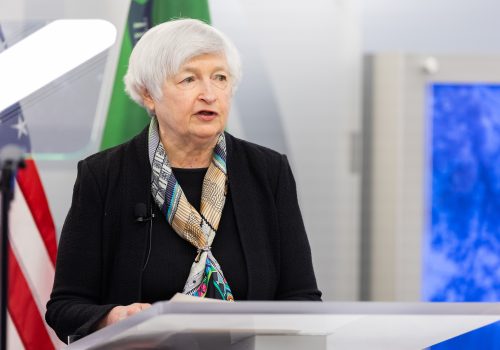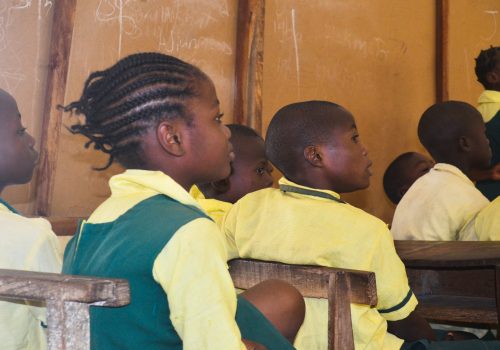Explore our data visualization
Macro-critical global trends are challenging the capacity and ability of Bretton Woods Institutions to deliver on their mandates. Climate change and increasing frequency of natural disasters, mushrooming sovereign debt, aging population, increasing use of economic and financial sanctions, deteriorating supply chains, and growing food and energy insecurities are some of these trends that are undermining stability and prospects of inclusive growth in the global economy.
Take natural disasters for example: its frequency has increased exponentially in the past six decades, from around less than 40 per year in early 1960s to more than 400 per year in 2021. Human activity plays a central role in this increase and pandemics are not an exception. COVID-19 is at least the sixth global pandemic since the 1918 Great Influenza Pandemic.
Global sovereign debt is expected to increase to $72 trillion by the end of 2022, a nearly 20% rise since the start of the pandemic, increasing the likelihood of sovereign defaults – especially in the developing world and emerging markets – in the near future. The world’s aging population is a factor as many governments’ old-age entitlement programs are in deficit. The share of population aged 65 and above has increased from 5.8% in 1980 to nearly 10% in 2020. With 19% of their population above 65, high income economies are aging rapidly. Such global demographic imbalances will exacerbate social security and immigration crises around the world.
Increasing usage of economic and financial sanctions as the go-to tactic in global affairs has introduced increasing complexities in global economic governance. Between 1950 and 2019, a total of 1,101 sanctions against governments have been implemented – 42% of which were levied by the United States. The recent developments related to the Russia-Ukraine crisis, have shown how economic warfare between the world’s major economies could damage the global economy. Weaponizing currencies, energy, and food supplies has forced hundreds of millions of people around the world into serious food and energy insecurities.
Featured work and analysis

At the intersection of economics, finance, and foreign policy, the GeoEconomics Center is a translation hub with the goal of helping shape a better global economic future.

